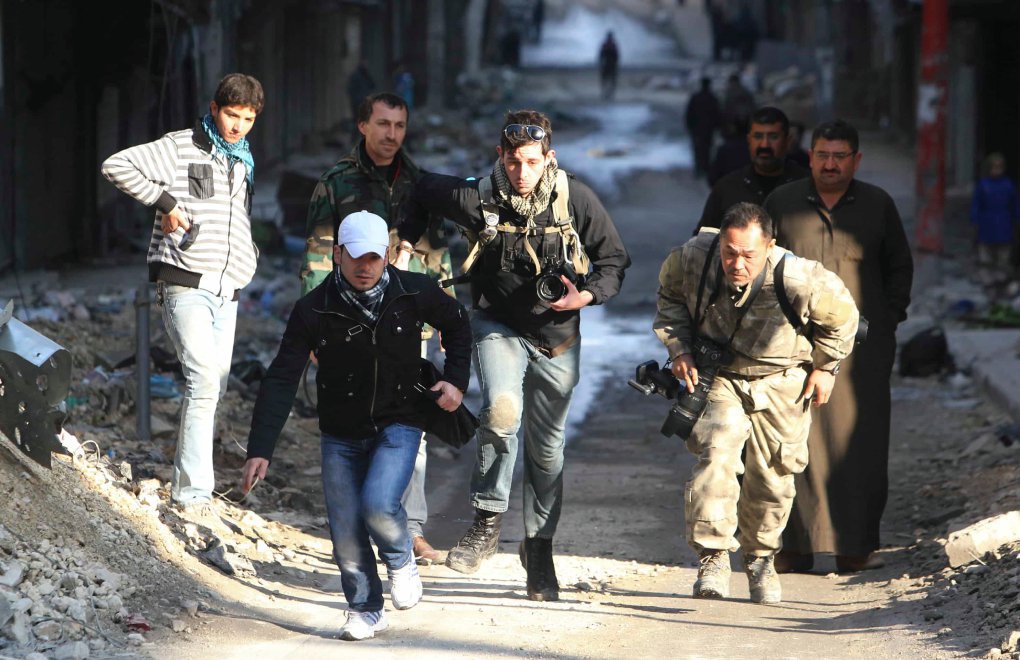Click to read the article in Turkish
Reporters Without Borders (RSF) has warned Turkey against expulsions of Syrian journalists, highlighting the severe dangers they may face if sent back to their war-torn homeland.
Several Syrian journalists currently residing in Turkey have reached out to RSF, revealing the conditions they face, according to a statement the group released today.
Living in constant fear and hiding, they find themselves unable to roam the streets, let alone pursue their journalistic careers, said the statement.
"We live in terror," one of the journalists was quoted as saying. "I lost my job with a Syrian media outlet here because I could no longer go to work. If I go out, I risk getting myself sent back to Syria. I don't know what to do."
These fears are not unfounded as Turkey has stepped up deportations since the start of the year, RSF noted. "Syrian journalists who fled their country have not been spared. Arrested on the street or sometimes at home, they have been interrogated, mistreated and threatened with deportation back to Syria, one of the world's most dangerous countries for journalists."
"No region in Syria is safe for journalists"
Jonathan Dagher, head of RSF's Middle East Desk, said, "No region in Syria is safe for journalists. To send them back to the country they fled because of their journalism is to put them at risk of being jailed, abducted or even murdered. The Turkish authorities know this.
"Journalists are once again hostage to diplomatic power struggles. At the very least, we call on the Turkish authorities to adhere strictly to the principle that no refugee should be sent back to a country where they would be in probable danger.
"The authorities must provide journalists in Turkey with all necessary protection and, to this end, must facilitate the required administrative procedures."
The most significant peril arises from retaliatory actions by the factions governing various parts of the country, encompassing the armed groups backed by Turkey in northern Syria, Hay'at Tahrir al-Sham, an extremist group controlling the Idlib province, and the Syrian government itself, said RSF.
"Although journalists are usually deported to rebel-held territory, rather than government-controlled areas, they are still at the mercy of militant groups capable of threatening, kidnapping and murdering them."
Foreign policy shift
While the formal reason for detentions and deportations is usually expired papers, the underlying reason is a shift in Turkey's policies towards Syria, the group asserted.
"In 2014, President Erdoğan accused Syrian President Bashar al-Assad of "state terrorism" and granted millions of Syrians temporary protection in Turkey. But in 2019, RSF was already sounding the alarm about expulsions of Syrian journalists for foreign policy reasons.
"And now, for the past few months – as Turkey, like other countries in the region, has been seeking to restore diplomatic relations with Damascus – journalists have been struggling to renew their temporary protection applications."
One example was the case of Khaled Obeid, who learned during a hospital visit in November that document was no longer considered valid because his information had not been updated.
He was detained in Osmaniye, southern Turkey, on January 11 while reporting for the Creative Syrians media outlet although he had an administrative appointment scheduled a few days later to regularize his situation.
He was then forced to sign a "voluntary" deportation form and was deported to Syria.
Journalists killed in Syria
Between 300 and 700 professional and non-professional journalists have been killed in Syria since the start of the war in 2011, including three in 2022, according to RSF figures.
During the same period, more than 300 journalists have been arrested and nearly 100 have been kidnapped. Nearly 100 of these arrested or abducted journalists are still missing. (HA/VK)







132.jpg)
kkk.jpg)